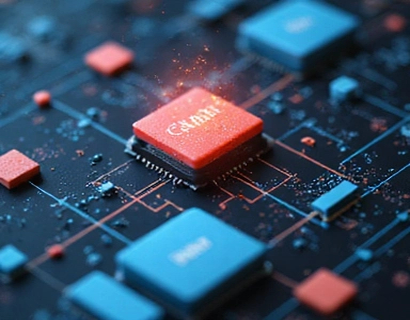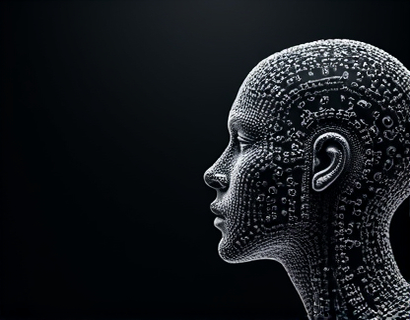Smart Contracts and Management Tools: Revolutionizing Governance for Enhanced Democracy and Participation
In recent years, the intersection of technology and governance has given rise to innovative solutions that promise to transform the way democratic processes are conducted. Among these, smart contracts and advanced management tools stand out as pivotal elements in streamlining decision-making, enhancing transparency, and boosting community engagement. This article explores the transformative potential of these technologies, focusing on how they can foster universal democracy and participatory governance, catering to individuals and organizations committed to pioneering new democratic solutions.
The Rise of Smart Contracts in Governance
Smart contracts, self-executing contracts with the terms of the agreement directly written into code, have been a cornerstone of blockchain technology since its inception. In the context of governance, smart contracts offer a unique opportunity to automate and enforce the rules and regulations that underpin democratic processes. By eliminating the need for intermediaries, smart contracts can reduce costs, increase efficiency, and minimize the potential for human error or manipulation.
One of the most significant advantages of smart contracts in governance is their ability to ensure transparency and accountability. Every transaction or agreement executed through a smart contract is recorded on a blockchain, a decentralized and immutable ledger. This means that all stakeholders can verify the terms and outcomes of agreements in real-time, fostering trust and reducing the risk of corruption. For instance, in electoral processes, smart contracts can be used to manage voter registration, vote counting, and result declaration, ensuring that each step is transparent and tamper-proof.
Enhancing Decision-Making Processes
Smart contracts can significantly streamline decision-making processes in governance by automating routine tasks and enforcing predefined rules. For example, in municipal governance, smart contracts can be used to manage budget allocations, ensuring that funds are distributed according to predetermined criteria and timelines. This not only speeds up the process but also reduces the potential for political interference or mismanagement.
Moreover, smart contracts can facilitate more inclusive and participatory decision-making. By integrating with digital platforms, citizens can propose and vote on local initiatives or policies through smart contracts. This direct democracy approach ensures that the voices of all community members are heard and considered, leading to more representative and effective governance.
Management Tools for Democratic Engagement
Beyond smart contracts, innovative management tools are playing a crucial role in enhancing democratic participation. These tools leverage blockchain technology and other advanced features to create transparent, secure, and user-friendly platforms for civic engagement. For instance, digital voting systems powered by blockchain can ensure the integrity and confidentiality of votes, making the voting process more accessible and trustworthy.
Another key area is the use of decentralized applications (dApps) for public services. dApps can provide citizens with a seamless way to interact with government services, from filing complaints to accessing public records. By removing bureaucratic hurdles and reducing the need for physical interactions, these tools can increase citizen engagement and satisfaction with public services.
Fostering Universal Democracy
The combination of smart contracts and management tools has the potential to create a more universal democracy, where participation is not limited by geographical, economic, or social barriers. By leveraging the internet and blockchain technology, these tools can bridge the gap between citizens and government, making democratic processes more inclusive and equitable.
For instance, in regions with limited access to traditional voting mechanisms, digital platforms can enable remote participation, ensuring that every citizen has a voice. Additionally, multilingual support and accessibility features can make these platforms usable for a diverse population, including those with disabilities. This inclusivity is crucial for building a truly democratic society where all members have the opportunity to contribute and benefit.
Case Studies and Real-World Applications
Several projects around the world are already demonstrating the potential of smart contracts and management tools in governance. One notable example is the use of blockchain-based voting systems in Estonia, a country that has been at the forefront of digital governance. The Estonian e-Residency program allows non-citizens to participate in certain government processes online, enhancing international collaboration and transparency.
Another example is the city of Zug in Switzerland, often referred to as the "Crypto Valley," where blockchain companies and governance initiatives are thriving. The city has implemented smart contract-based solutions for property management and public services, showcasing how these technologies can improve efficiency and transparency in local governance.
Challenges and Considerations
While the potential of smart contracts and management tools in governance is significant, there are several challenges and considerations that must be addressed. One of the primary concerns is the technical complexity and the need for robust infrastructure. Implementing these technologies requires a solid understanding of blockchain and distributed systems, as well as reliable internet connectivity.
Another challenge is ensuring the security and privacy of data. While blockchain is known for its security features, the integration of smart contracts and management tools must also protect sensitive information and prevent unauthorized access. This requires stringent security protocols and regular audits.
Furthermore, there is a need for regulatory frameworks that support the adoption of these technologies without stifling innovation. Governments and regulatory bodies must work together to create policies that encourage the use of smart contracts and management tools while safeguarding public interests.
The Future of Governance
The integration of smart contracts and management tools in governance represents a significant step towards a more transparent, efficient, and participatory democratic system. As these technologies continue to evolve, their applications in governance are likely to expand, addressing a wide range of challenges and opportunities.
For individuals and organizations committed to advancing democratic practices, embracing these innovations is crucial. By leveraging smart contracts and management tools, stakeholders can contribute to building a governance model that is truly of the people, by the people, and for the people. The future of democracy is not just about voting; it's about active, informed, and continuous participation in the decision-making processes that shape our societies.











































